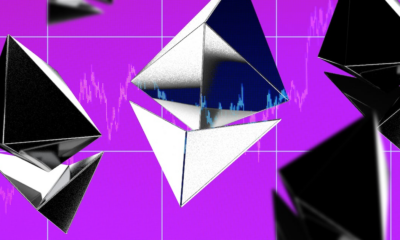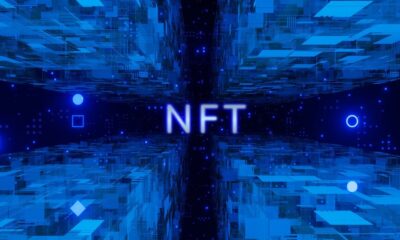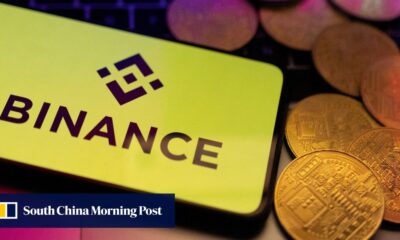DeFi
3 Hottest Trends Impacting FinTech Trading in 2024

The digitalization of real-world assets (RWA) becomes the pioneer of FinTech in 2024. CoinGecko Reports that commodity-backed tokens reached a market capitalization of $1.1 billion, with gold being the most popular commodity. Tokenized treasury products have also increased by 782% in 2023 alone to reach a value of over $931 million. In 2023, the total value locked (TVL) of on-chain RWA doubled from the previous year to $2.5 billion.
These trends, catalyzed by advances in artificial intelligence (AI) and the continued growth of decentralized finance (DeFi) services, signal a fundamental shift in market accessibility and global liquidity. Blockchain startups that focus on RWA are bridging the gap between traditional finance and the opportunities offered by blockchain-powered markets.
In this article, we will look at three trends that will have a big impact on FinTech trading this year.
Trend 1: AI-powered trading
AI and machine learning (ML) are no longer just buzzwords in FinTech. These are already an integral part of the industry. AI-based algorithms now process massive data sets at lightning speed, and these identify patterns and insights that would otherwise elude traditional human understanding and analysis.
This trend includes several key developments.
For example, algorithmic trading uses AI to make trades at the best times and prices, capturing brief market opportunities that human traders cannot follow. Additionally, AI performs sentiment analysis, taking into account current events and real-world data to predict trends before they develop. Sophisticated risk models can also enable traders to make more informed decisions, thereby reducing risk.
Machine learning is also capable of personalizing investment and trading strategies. This is seen with the trend of automated advisory services, which can cater to a wide range of clientele, from casual traders to high net worth individuals in need of portfolio management.
A technology-driven approach can do wonders for finance. “This would enrich users’ banking experience and allow them to seamlessly interact with an endless range of financial services, like a plug-and-play model, with little friction,” Vertex Ventures partner in South Asia. East and India. Genping Lui wrote on TNGlobal. “In this new paradigm, key services such as depository service, asset custody, insurance, lending services, risk management and securities offering, etc. will be redistributed among different layers technology and service providers.”
Trend 2: Unlocking global liquidity with tokenized RWA
The tokenization of RWA blurs the lines between traditional and blockchain-based markets. Earlier, we saw this come to fruition with stablecoins tied to fiat currencies. Now, tokenized commodities such as gold and stocks become tradable on decentralized exchanges (DEX).
This trend offers advantages such as global accessibility, in which RWAs can be traded 24/7 by anyone online, thereby removing geographic barriers and bypassing many of the limitations of trading houses. traditional brokerage. These can be any commodity, from traditional commodities like oil, wheat, and precious metals, to tech-focused funds like Bitcoin and Ethereum.
Tokenization can also improve liquidity through fractional ownership. This means that individual or smaller-scale investors can trade assets that only large institutional investors could previously access.
The transparency of public blockchains will also build trust in the market by providing a verifiable record of transactions and asset ownership. At the same time, the tokenization of RWAs makes blockchain-based trading more attractive to traditional and tech-savvy traders.
“Institutions will come when more real-world assets can be confidently traded on-chain with perpetual swaps, futures and options contracts,” says Jonathan Caras, head of communications at Levana, a fully collateralized perpetual swaps exchange. “Platforms like Levana provide a soft landing for traditional investors because they come to our platform and start trading the assets they are already familiar with.”
The vision of RWAs is to democratize access to business opportunities through FinTech solutions. “Levana envisions a future in which traders of any technical background can come and easily trade a variety of global assets such as currencies, commodities, crypto assets and crypto derivatives,” adds Caras.
Levana enhances its siled liquidity markets by enabling up to 30x leverage with low fees, ensuring each market operates efficiently and independently. Additionally, the concept of “well capitalization” ensures that all open transactions within these siled markets are fully backed by adequate collateral, thereby maintaining the overall stability and transparency of the platform.
Trend 3: The evolution of DeFi
DeFi expands the possibilities for traders seeking access to innovative financial instruments. These solutions leverage smart contracts to facilitate financial services without the need for traditional intermediaries.
Through permissionless protocols, DeFi solutions enable access to anyone with a compatible crypto wallet, creating a more inclusive trading environment. Traders also maintain full autonomy and control over their assets, unlike custodial platforms where third parties hold direct access to transactions and assets.
DeFi solutions continue to evolve, offering new types of products and structures, such as lending/borrowing protocols and yield farming. Examples include lending crypto assets for interest or borrowing using crypto as collateral. DEXs allow users to trade cryptocurrencies directly without the need for a centralized exchange.
The growing importance of RWAs will also play an epic role in the growth of DeFi. As Galaxy states: “As RWA adoption grows and token development/composability improves, more DeFi protocols are likely to open up to accepting RWA tokens from end users to fulfill functions such as issuing stablecoins and acquiring leverage.
Takeaways
2024 will see the reshaping of FinTech trading with innovation and growth in AI-based solutions, RWA tokenization and DeFi use cases. AI enables traders to make faster, more informed decisions based on data. RWAs will open global markets to traders of all sizes. DeFi is already expanding the toolbox of available financial instruments and modalities that give traders greater autonomy and power.
What was once just access to mega-corporations and unstoppable financial institution executives can now be accessible to everyone. This pivotal year could mark the dawn of a new financial era, as these advancements catalyze a shift towards a fully inclusive and technologically enabled business environment.
TNGlobal INSIDER publishes relevant contributions to entrepreneurship and innovation. You can submit your own original or published contributions subject to editorial discretion.
Image credit: Unsplash
Understanding the impact of blockchain technology on sports gaming
DeFi
Pump.Fun is revolutionizing the Ethereum blockchain in terms of daily revenue

The memecoin launchpad saw the largest daily revenue in all of DeFi over the past 24 hours.
Memecoin launchpad Pump.Fun has recorded the highest gross revenue in all of decentralized finance (DeFi) in the last 24 hours, surpassing even Ethereum.
The platform has raised $867,429 in the past 24 hours, compared to $844,276 for Ethereum, according to DeFiLlama. Solana-based Telegram trading bot Trojan was the third-highest revenue generator of the day, as memecoin infrastructure continues to dominate in DeFi.
Pump.Fun generates $315 million in annualized revenue according to DeFiLlama, and has averaged $906,160 per day over the past week.
Income Ranking – Source: DeFiLlama
The memecoin frenzy of the past few months is behind Pump.fun’s dominance. Solana-based memecoins have been the main drug of choice for on-chain degenerates.
The app allows non-technical users to launch their own tokens in minutes. Users can spend as little as $2 to launch their token and are not required to provide liquidity up front. Pump.Fun allows new tokens to trade along a bonding curve until they reach a set market cap of around $75,000, after which the bonding curve will then be burned on Raydium to create a safe liquidity pool.
Pump.Fun generates revenue through accrued fees. The platform charges a 1% fee on transactions that take place on the platform. Once a token is bonded and burned on Raydium, Pump.fun is no longer able to charge the 1% fee.
Ethereum is the blockchain of the second-largest cryptocurrency, Ether, with a market cap of $395 billion. It powers hundreds of applications and thousands of digital assets, and backs over $60 billion in value in smart contracts.
Ethereum generates revenue when users pay fees, called gas and denominated in ETH, to execute transactions and smart contracts.
DeFi
DeFi technologies will improve trading desk with zero-knowledge proofs
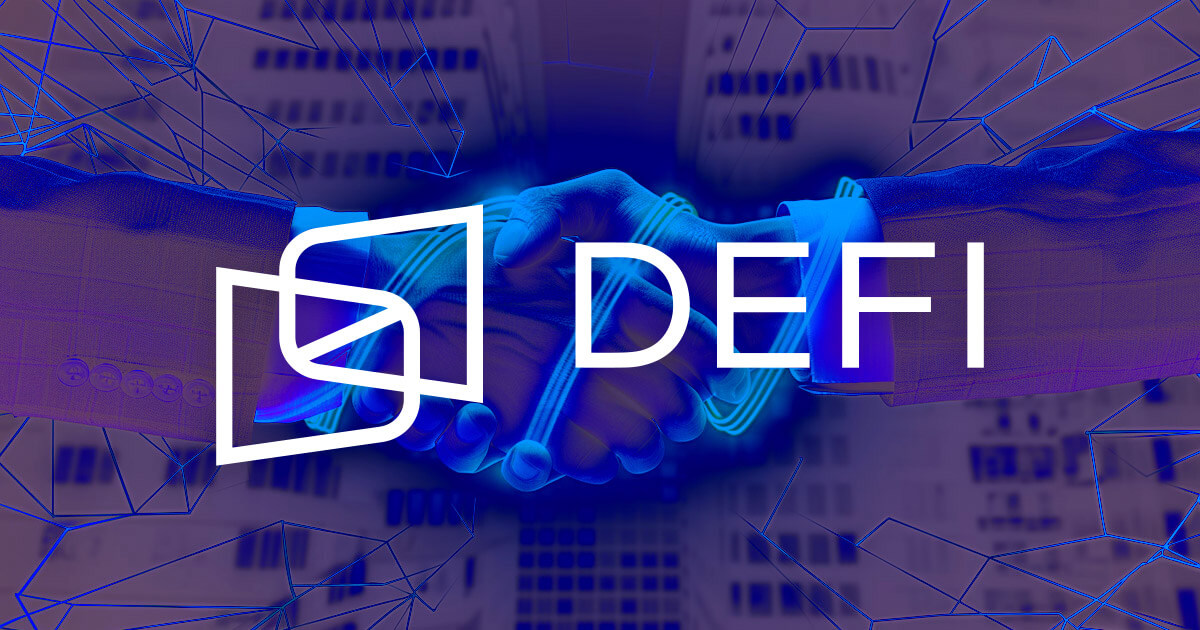
DeFi Technologies, a Canadian company financial technology companyis set to enhance its trading infrastructure through a new partnership with Zero Computing, according to a July 30 statement shared with CryptoSlate.
The collaboration aims to integrate zero-knowledge proof tools to boost operations on the Solana And Ethereum blockchains by optimizing its ability to identify and execute arbitrage opportunities.
Additionally, it will improve the performance of its DeFi Alpha trading desk by enhancing its use of ZK-enabled maximum extractable value (MEV Strategies).
Zero knowledge Proof of concept (ZKP) technology provides an additional layer of encryption to ensure transaction confidentiality and has recently been widely adopted in cryptographic applications.
Optimization of trading strategies
DeFi Technologies plans to use these tools to refine DeFi Alpha’s ability to spot low-risk arbitrage opportunities. The trading desk has already generated nearly $100 million in revenue this year, and this new partnership is expected to further enhance its algorithmic strategies and market analysis capabilities.
Zero Computing technology will integrate ZKP’s advanced features into DeFi Alpha’s infrastructure. This upgrade will streamline trading processes, improve transaction privacy, and increase operational efficiency.
According to DeFi Technologies, these improvements will increase the security and sophistication of DeFi Alpha’s trading strategies.
The collaboration will also advance commercial approaches for ZK-enabled MEVs, a new concept in Motor vehicles which focuses on maximizing value through transaction fees and arbitrage opportunities within block production.
Additionally, DeFi Technologies plans to leverage Zero Computing technology to develop new financial products, such as zero-knowledge index exchange-traded products (ETPs).
Olivier Roussy Newton, CEO of DeFi Technologies, said:
“By integrating their cutting-edge zero-knowledge technology, we not only improve the efficiency and privacy of our transactions, but we also pave the way for innovative trading strategies.”
Extending Verifiable Computing to Solana
According to the release, Zero Computing has created a versatile, chain-agnostic platform for generating zero-knowledge proofs. The platform currently supports Ethereum and Solana, and the company plans to expand compatibility with other blockchains in the future.
The company added that it is at the forefront of introducing verifiable computation to the Solana blockchain, enabling complex computations to be executed off-chain with on-chain verification. This development represents a significant step in the expansion of ZKPs across various blockchain ecosystems.
Mentioned in this article
Latest Alpha Market Report
DeFi
Elastos’ BeL2 Secures Starknet Grant to Advance Native Bitcoin Lending and DeFi Solutions
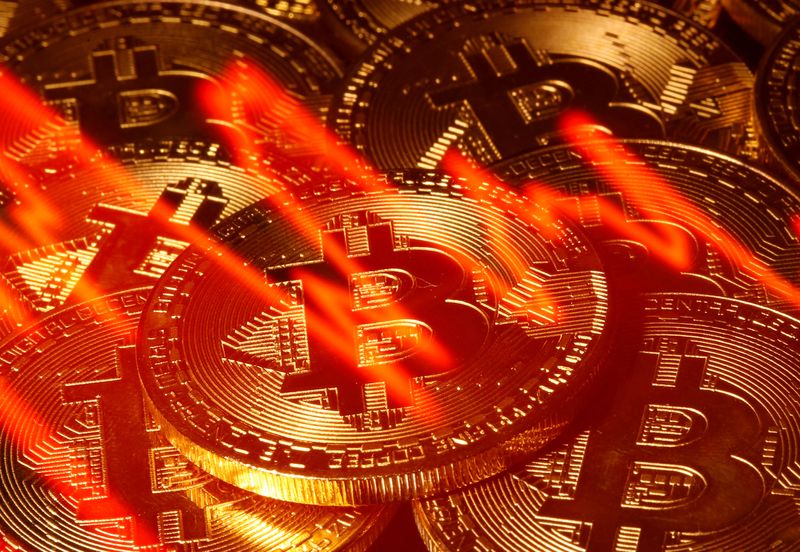
Singapore, Asia, July 29, 2024, Chainwire
- Elastos BeL2 to Partner with StarkWare to Integrate Starknet’s ZKPs and Cairo Programming Language with BeL2 for Native DeFi Applications
- Starknet integration allows BeL2 to provide smart contracts and dapps without moving Bitcoin assets off the mainnet
- Starknet Exchange Validates the Strength of BeL2’s Innovation and Leadership in the Native Bitcoin Ecosystem
Elastos BeL2 (Bitcoin Elastos Layer2) has secured a $25,000 grant from Starknet, a technology leader in the field of zero-knowledge proofs (ZKPs). This significant approval highlights the Elastos BeL2 infrastructure and its critical role in advancing Bitcoin-native DeFi, particularly Bitcoin-native lending. By integrating Starknet’s ZKPs and the Cairo programming language, Elastos’ BeL2 will enhance its ability to deliver smart contracts and decentralized applications (dapps) without moving Bitcoin (BTC) assets off the mainnet. This strategic partnership with Starknet demonstrates the growing acceptance and maturity of the BeL2 infrastructure, reinforcing Elastos’ commitment to market leadership in the evolving Bitcoin DeFi market.
Starknet, developed by StarkWare, is known for its advancements in ZKP technology, which improves the privacy and security of blockchain transactions. ZKPs allow one party to prove to another that a statement is true without revealing any information beyond the validity of the statement itself. This technology is fundamental to the evolution of blockchain networks, which will improve BeL2’s ability to integrate complex smart contracts while preserving the integrity and security of Bitcoin.
“We are thrilled to receive this grant from Starknet and announce our partnership to build tighter integrations with its ZKP technology and the Cairo programming language,” said Sasha Mitchell, Head of Bitcoin Layer 2 at Elastos. “This is a major milestone for BeL2 and a true recognition of the maturity and capabilities of our core technology. This support will allow us to further develop our innovation in native Bitcoin lending as we look to capitalize on the growing acceptance of Bitcoin as a viable alternative financial system.”
A closer integration with Cairo will allow BeL2 to leverage this powerful programming language to enhance Bitcoin’s capabilities and deliver secure, efficient, and scalable decentralized finance (DeFi) applications. Specifically, the relationship with Cairo reinforces BeL2’s core technical innovations, including:
- ZKPs ensure secure and private verification of transactions
- Decentralized Arbitrage Using Collateralized Nodes to Supervise and Enforce Fairness in Native Bitcoin DeFi
- BTC Oracle (NYSE:) facilitates cross-chain interactions where information, not assets, is exchanged while Bitcoin remains on the main infrastructure
BeL2’s vision goes beyond technical innovation and aims to innovate by creating a new financial system. The goal is to build a Bitcoin-backed Bretton Woods system, address global debt crises, and strengthen Bitcoin’s role as a global hard currency. This new system will be anchored in the integrity and security of Bitcoin, providing a stable foundation for decentralized financial applications.
As integration with Starknet and the Cairo programming language continues, BeL2 will deliver further advancements in smart contract capabilities, decentralized arbitration, and innovative financial products. At Token 2049, BeL2 will showcase further innovations in its core technologies, including arbitrators, that will underscore Elastos’ vision for a fairer decentralized financial system rooted in Bitcoin.
About Elastos
Elastos is a public blockchain project that integrates blockchain technology with a suite of redesigned platform components to produce a modern Internet infrastructure that provides intrinsic privacy and ownership protection for digital assets. The mission is to create open source services that are accessible to the world, so developers can create an Internet where individuals own and control their data.
The Elastos SmartWeb platform enables organizations to recalibrate how the Internet operates to better control their own data.
https://www.linkedin.com/company/elastosinfo/
ContactPublic Relations ManagerRoger DarashahElastosroger.darashah@elastoselavation.org
DeFi
Compound Agrees to Distribute 30% of Reserves to COMP Shareholders to End Alleged Attack on Its Governance

Compound will introduce the staking program in exchange for Humpy, a notorious whale accused of launching a governance attack on the protocol, negating a recently adopted governance proposal.
Compound is launching a new staking program for COMP holders as a compromise with Humpy, a notorious DeFi whale accused of launching a governance attack against the veteran DeFi protocol.
On July 29, Bryan Colligan, head of business development at Compound, published a governance proposal outlining plans for a new compound participation product that would pay 30% of the project’s current and future reserves to COMP participants.
Colligan noted that the program was requested by Humpy in exchange for his agreement Proposition 289 — which sought to invest 499,000 COMP worth approximately $24 million into a DeFi vault controlled by Humpy, and which appears to have been forced by Humpy and his associates over the weekend.
“We propose the following staking product that meets Humpy’s stated interests as a recent new delegate and holder of COMP in exchange for the repeal of Proposition 289 due to the governance risks it poses to the protocol,” Colligan said. “The Compound Growth Program…will execute the above commitments, given the immediate repeal of Proposition 289.”
Colligan added that the proposal would expire at 11:59 p.m. EST on July 29. Had Humpy not rescinded Proposition 289, Compound would move forward with it. Proposition 290 — block Humpy using the Compound team’s multi-sig to deploy a new governor contract removing the delegate’s governance power behind Proposition 289.
Hunchback tweeted that Proposition 289 had been repealed a few hours ago. “Glad to have brought Compound Finance back into the spotlight,” they said. added. “StakedComp… finally becomes a yield-generating asset!
Markets reacted favorably to the resolution, with the price of COMP increasing by 6.2% over the past 24 hours, according to CoinGecko.
Attack on governance
Proposition 289 proposed investing 499,000 COMP from the Compound treasury into goldCOMP, a yield-generating vault of the Humpy-linked Golden Boys team.
The proposal passed with nearly 52 percent of the vote on July 28, despite two previous iterations of the proposal being defeated by strong opposition. Can And JulyThe proposals notably asked for only 92,000 COMP, with security researchers warning that any deposit of tokens into the goldCOMP vault would cede their governance power.
In May, Michael Lewellen of Web3 security firm OpenZeppelin, note The first proposal was submitted by a new governance delegate who was suddenly awarded 228,000 COMP by five wallets that got their tokens from the Bybit exchange. Combined with his own tokens, the delegate got 325,333 COMP, which is over 81% of the 400,000 tokens required for a governance proposal to reach quorum.
“We have been alerting the community to the risk that these delegates could support a potential attack on governance,” Lewellen said. “The timing of the new proposal and these recent delegations are suspect.”
Read more: Compound community accuses famous whale of attacking engineering governance
-

 Videos4 weeks ago
Videos4 weeks agoAbsolutely massive: the next higher Bitcoin leg will shatter all expectations – Tom Lee
-

 News12 months ago
News12 months agoVolta Finance Limited – Director/PDMR Shareholding
-

 News12 months ago
News12 months agoModiv Industrial to release Q2 2024 financial results on August 6
-

 News12 months ago
News12 months agoApple to report third-quarter earnings as Wall Street eyes China sales
-

 News12 months ago
News12 months agoNumber of Americans filing for unemployment benefits hits highest level in a year
-

 News1 year ago
News1 year agoInventiva reports 2024 First Quarter Financial Information¹ and provides a corporate update
-

 News1 year ago
News1 year agoLeeds hospitals trust says finances are “critical” amid £110m deficit
-

 Markets1 year ago
Markets1 year agoWhale Investments in Bitcoin Hit $100 Billion in 2024, Fueling Insane Investor Optimism ⋆ ZyCrypto
-

 DeFi1 year ago
DeFi1 year ago🏴☠️ Pump.Fun operated by Insider Exploit
-

 Videos1 year ago
Videos1 year ago$1,000,000 worth of BTC in 2025! Get ready for an UNPRECEDENTED PRICE EXPLOSION – Jack Mallers
-

 Videos1 year ago
Videos1 year agoABSOLUTELY HUGE: Bitcoin is poised for unabated exponential growth – Mark Yusko and Willy Woo
-

 Tech1 year ago
Tech1 year agoBlockDAG ⭐⭐⭐⭐⭐ Review: Is It the Next Big Thing in Cryptocurrency? 5 questions answered

